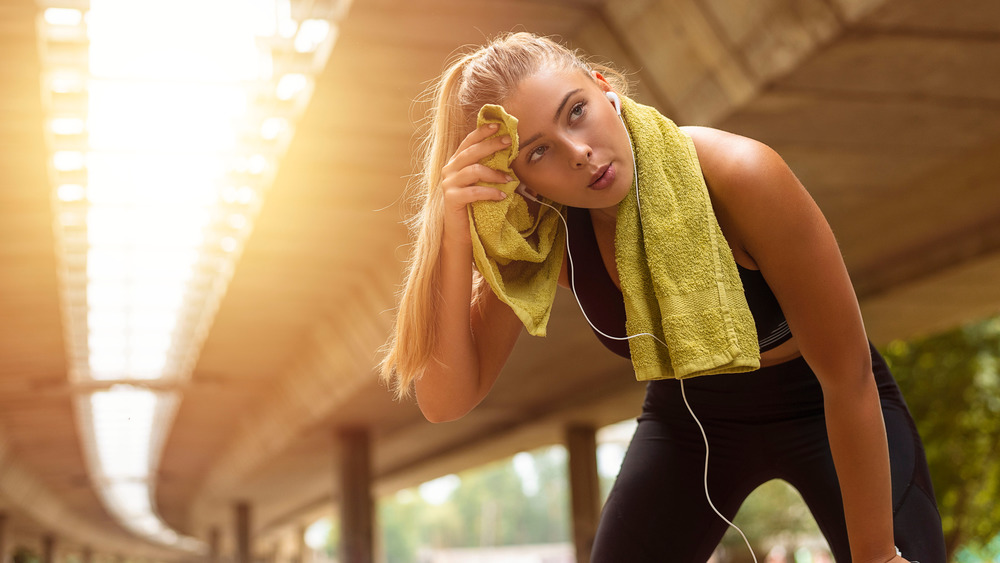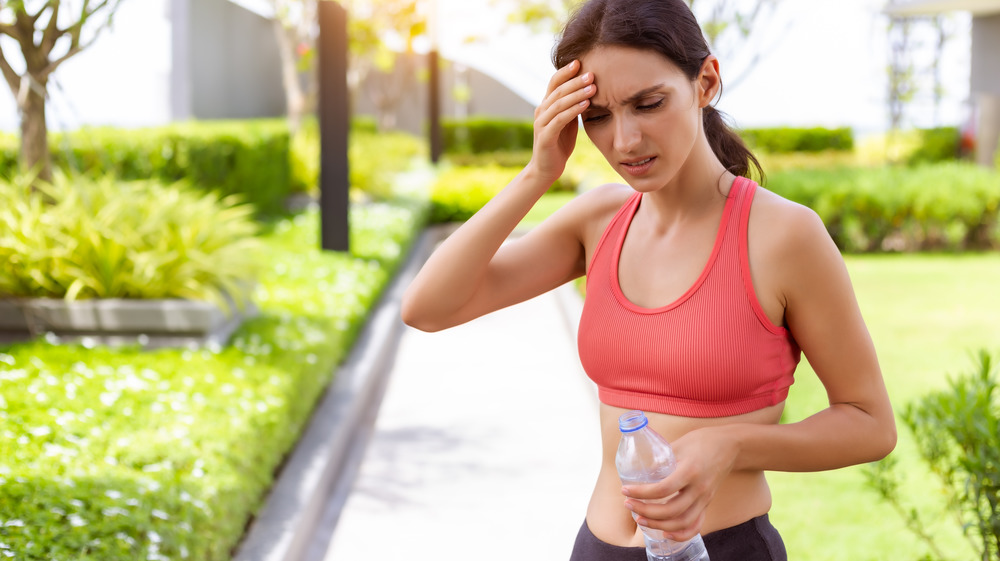When Your Body Gets Overheated, This Is What Happens
If you're working out in the heat, whether that means under the beating sun, in a hot yoga class, or just in a basement with no fan or air conditioning, you run the risk of your body becoming overheated. When you overheat, you're at risk of the early stages of heat exhaustion, which, if left unchecked, can lead to heat stroke. Here's what you need to know about the symptoms that signal you need to stop and get cooled down and rehydrated, as soon as possible.
When your body becomes overheated, typically you're also dehydrated, but you also could be salt-depleted, especially if you're a heavy sweater. If you're mildly dehydrated, you can expect symptoms like weakness, headache, and, of course, feelings of intense thirst. But if you're low on salt, you're more likely to feel muscle cramping and dizziness (via WebMD).
Heat exhaustion can present in quite a few different ways: You might notice a sense of confusion or dizziness, headaches, cramping, extreme fatigue, pale or excessively sweaty skin, or more serious symptoms like fainting or vomiting. Your body temperature will rise above normal (via Johns Hopkins Medicine).
How do you treat heat exhaustion?
If you suspect that you're beginning to suffer from heat exhaustion, first slow down and try to find somewhere cool or out of the sun. Pay attention to your body's signs, from how you're feeling to your breathing and pulse rates and the color of your skin. Elevate your legs if possible, and remove any extra clothing, like your sweaty t-shirt, or a hydration pack if you're out running on a hot day. The goal is to begin to bring your body temperature back down. You can also splash yourself with cool water if you have access to any, or sip water or a sports drink to combat the effects of dehydration while cooling your body.
Don't mess around: If you're not feeling recovered within a couple of hours, or your symptoms are continuing to worsen, seek emergency medical treatment (via Verywell Fit).
Fortunately, the more your body adapts to exercise, especially exercise in heat, the less likely you are to suffer the effects of heat exhaustion. Remember, as temperatures rise, start slow with exercise and pay close attention to how you're feeling.


